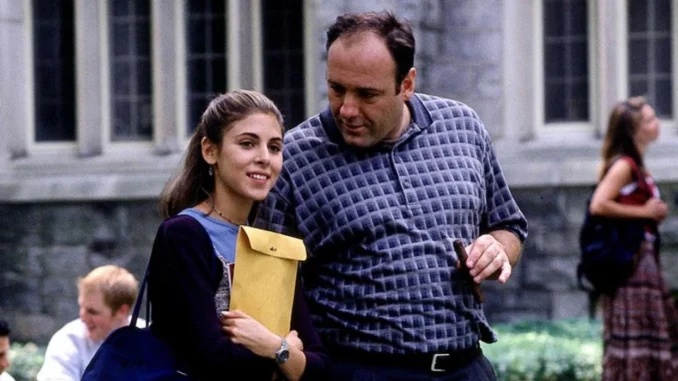
When you think of the groundbreaking series The Sopranos, it’s easy to pigeonhole it as just another mafia drama. But the fifth episode of the first season, aptly titled “College,” reveals the show’s true depth. This episode not only showcases the complexities of the mob lifestyle but also dives deep into family dynamics, making it clear that The Sopranos was an artful examination of human relationships, not just a story about organized crime.
The Birth of The Sopranos: A Shift in Storytelling
From Film Concept to Television Phenomenon
David Chase originally envisioned The Sopranos as a feature film, drawing from his own family experiences—especially his tumultuous relationship with his mother. During this time, he was in therapy, which influenced the story’s core. The idea of a mobster seeking psychological help was revolutionary, especially in contrast to the comedic take of films like Analyze This.
When it transitioned to a television series, it retained that unique perspective, illustrating how the characters were not just criminals but deeply flawed individuals grappling with their personal demons. This thematic richness sets The Sopranos apart from its contemporaries and ensures its place in the realm of prestige television.
“College”: A Game Changer
In “College,” the contrast between Tony’s life as a mob boss and his role as a father is brought into sharp focus. This episode serves as a microcosm of the entire series, perfectly blending dark humor with poignant family moments.
The storyline follows Tony Soprano and his daughter, Meadow, as they visit colleges in Maine. The idyllic setting contrasts starkly with the dark reality of Tony’s life, culminating in a shocking twist that highlights the moral ambiguity at play.
The Father-Daughter Dynamic: Unpacking Tony and Meadow
An Honest Conversation
As they embark on their college tour, a pivotal conversation takes place when Meadow bluntly asks Tony if he’s involved in the mafia. This moment is groundbreaking in its honesty, something rarely explored in crime dramas. While Tony’s response is evasive—”there is no mafia”—it underscores the tension between the father and daughter.
Meadow’s probing inquiry represents not just a child’s curiosity but an adult’s struggle to understand the world around her. This moment reveals how the show’s writing elevates it above the typical gangster narrative, highlighting complex family dynamics rather than simply glorifying mob life.
The Lies and Their Consequences
Throughout their trip, the dichotomy of Tony’s dual life unfolds. He is both a caring father and a ruthless criminal, which creates a rich tapestry of emotional conflict. After Meadow confronts him about the illegal activities she suspects, Tony’s evasions reveal the fundamental flaws in their relationship.
He attempts to maintain a facade, but his inability to be completely honest creates a rift. Despite their shared moments of love and understanding, the underlying truth—that he is involved in violent crime—casts a shadow over their bond. This theme of deception runs throughout the series, and “College” encapsulates it beautifully.
Carmela’s Struggles: Infidelity and Sacrament
A Parallel Storyline
While Tony and Meadow navigate their complicated relationship, Carmela is at home facing her own challenges. She welcomes Father Intintola into their house during a storm, setting up an emotionally charged storyline that cleverly parallels Tony’s trip.
The priest’s visit is not just a plot device; it serves as a vehicle for Carmela to confront her own insecurities about her marriage. The intimacy of their interactions, culminating in a makeshift communion, subtly suggests a longing for connection that she feels is missing with Tony.
Confession and Intimacy
In a powerful scene, Carmela confesses her fears to Father Intintola, revealing her suspicions about Tony’s infidelities. This moment of vulnerability underscores the emotional weight of their marriage, rooted in loyalty yet plagued by betrayal. The sacrament of communion becomes symbolic, offering her a temporary respite from her painful reality.
Chase brilliantly captures the tension between Carmela’s Catholic upbringing and her conflicted feelings about Tony’s lifestyle. This complexity enriches the narrative, showcasing how love, loyalty, and guilt can coexist within a single relationship.
The Climax: Violence Amidst Family Dynamics
The Dark Turn
As the episode unfolds, the storyline takes a dark turn when Tony encounters Fabian “Febby” Petrulio, a former associate turned FBI informant. This encounter underscores the brutal realities of Tony’s life as a mobster, juxtaposed with his fatherly duties.
Tony’s decision to kill Febby highlights the moral dilemmas faced by characters throughout the series. The brutality of mob life is starkly contrasted with the tenderness he shows to Meadow, adding layers to his character. This duality is what makes The Sopranos compelling—Tony is not just a monster; he is a man struggling with his identity.
The Impact of Murder
In the final moments of “College,” the murder of Febby is not glorified. Instead, it serves as a tragic reminder of the lengths Tony will go to protect his secrets and maintain his position. The implications of this act ripple through the family, revealing the consequences of a life steeped in crime.
Meadow’s innocence stands in stark contrast to Tony’s violent reality. The moment she unwittingly witnesses her father’s dark side solidifies the rift between their worlds. This shift is not just about the murder itself but about what it means for their relationship moving forward.
Conclusion: More Than Just a Mafia Show
“College” stands as a testament to why The Sopranos transcended the crime genre. It delves into the complexities of family relationships, the struggles of personal identity, and the harsh realities of a life riddled with violence.
By skillfully blending these elements, David Chase created a series that was not just about mobsters and their exploits but about the human experience in all its messy, flawed glory. This episode encapsulates the essence of The Sopranos—a narrative that is as much about love and family as it is about crime and betrayal.
